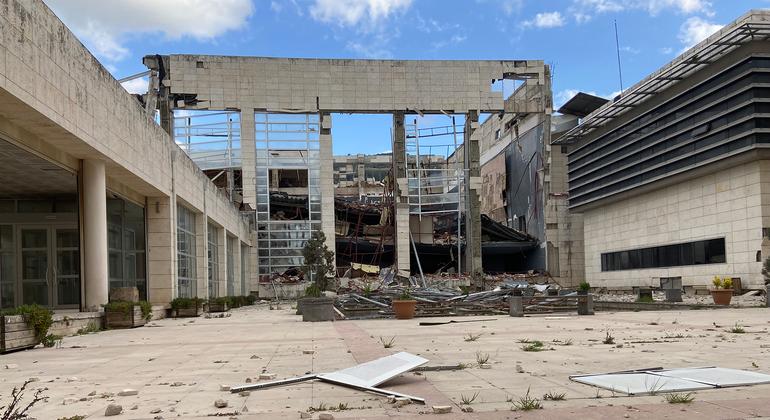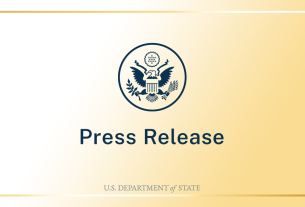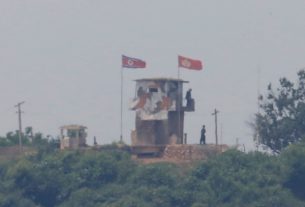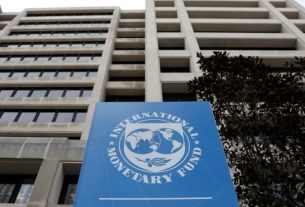It marks the start of a wider effort to support the Ministry of Culture and Tourism in protecting damaged artifacts, ahead of full restoration.
The deliveries took place two months after major earthquakes caused the deaths of at least 50,000 people, displaced more than 3.3 million, and caused an estimated $103.6 billion in damage.
“These containers are just the beginning,” said UNDP Resident Representative Louisa Vinton. “UNDP is currently seeking funding to support a broader effort to rebuild thousands of damaged cultural heritage monuments, in all their splendid diversity.
“This is not just about physical objects, as crucial as they are to historical memory; it is also a contribution to reviving the region’s unique identity and human spirit.”
Devastation in Antakya
The Ministry of Culture and Tourism lists over 8,000 historic structures across the eleven provinces, which have suffered the most due to the deadly quakes.
More than 60 percent of all the structures that heritage experts were able to inspect suffered some level of damage, according to the Türkiye Earthquakes Recovery and Reconstruction Assessment (TERRA) conducted by the Government with support from the UN, the European Union (EU), and the World Bank.
“With so much of Antakya still in ruins, we need to protect and restore what we can of the enduring symbols of our city,” said Turkish actor and UNDP Goodwill Ambassador Mert Firat. Firat’s family comes from the ancient coastal city of Antakya, and, as a founder of the Needs Map civic organization, he has been active in earthquake response from the first day.
Providing support to safeguard heritage
In addition to the containers, UNDP will also be supplying handheld radios, drones, and tablets, which are needed to assess damage to artifacts, map damaged areas, take photographs for documentation and ensure the security of the artifacts while damage assessment studies continue.
UNDP has already supplied 25 containers to firefighters in Hatay, as a temporary replacement for the building in Antakya that housed the fire department and all its trucks; it collapsed completely during the earthquakes.
UNDP is also supplying waste management equipment, tools, and commodities to help manage earthquake debris in a way that protects public health and the environment; and establishing mobile day-care centres for the elderly and persons with disabilities.
It is also with women’s cooperatives to set up mobile kitchens supplied with local farm produce; and supporting efforts to scale up vocational training for earthquake survivors displaced to other regions.



